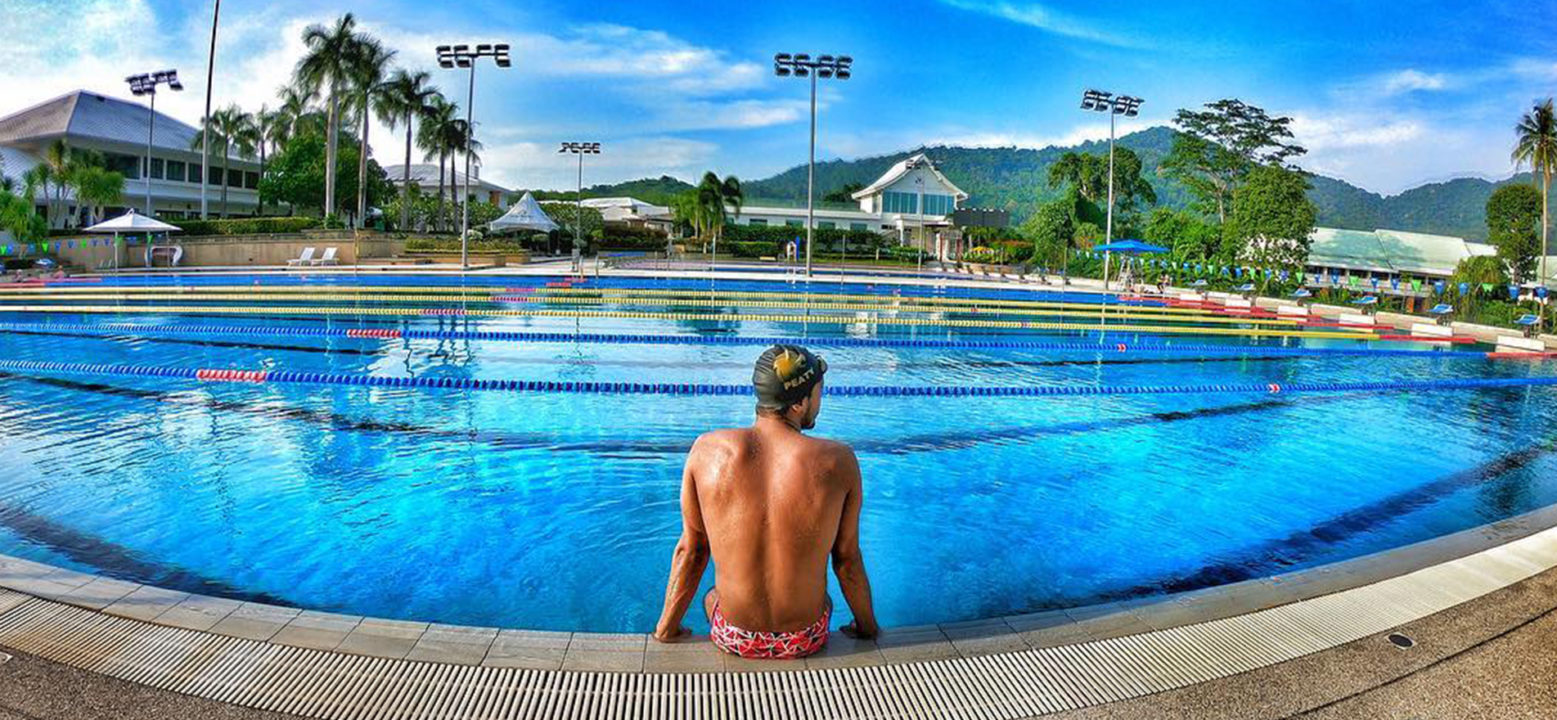Courtesy: Jonathan Rutter & Funky Trunks – a SwimSwam Partner
The sun rises at 6:20 a.m. in Phuket, but Ayman Kelzieh has been swimming since 5. It’s a grueling session today – 8000 meters of drilling, kicking, pulling, and medley work, capped off with an hour-long threshold set. There are forty-nine other swimmers hard at work beside him. They represent over a dozen countries in four continents, but have come together to swim here at Thanyapura, the top training center in Thailand. After the morning session, Ayman will spend most of his day at the pool. He has coaching from 9 to 3, a gym session at 4, and another swim that lasts until 7. Then, he will get an early night to prepare for the same schedule tomorrow.
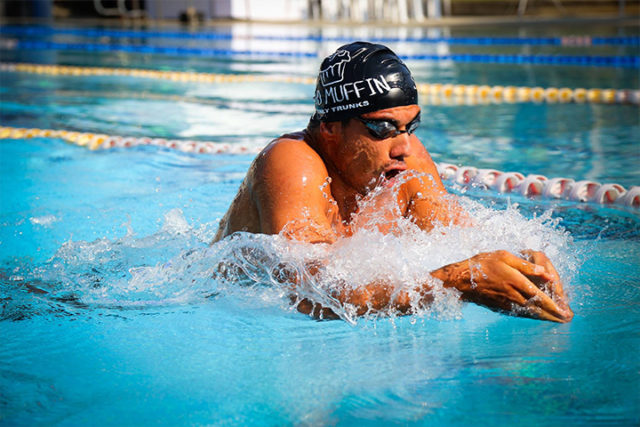
Ayman’s life hasn’t always been so peacefully routine. Before he came to Thanyapura, he lived and swam in his home country of Syria. He started swimming at age seven in the city of Aleppo, and by age sixteen he was already placing well at Syrian Nationals. But in 2011, as the once peaceful Arab Spring protests ignited into civil war, swimming suddenly became risky. Without a safe place to train, Ayman travelled from Aleppo to Damascus for a swimming camp. While he was there, the fighting intensified, and the road between the two cities became extremely dangerous to use. He was supposed to stay in Damascus for one month.
He ended up staying for five years.
The Syrian Civil War, at first glance, is a two-sided conflict between the government and groups of rebel freedom fighters. Ayman describes it like this: “People who want freedom get a gun, and the government starts shooting back. Then everyone is killing each other.” But the war has expanded into something far more complex – an international mess of incompatible ambitions, a massive global proxy war. The government has support from Russia and Iran, both trying to maintain power in the Middle East. The United States has backed Kurdish fighters in the North, who are fighting for their own freedom and the fall of the Islamic State. Turkey, meanwhile, has backed Russia because it fears Kurdish autonomy.
If there are still two sides to the war, both are responsible for unspeakable violence against civilians, leaving the Syrian people caught somewhere between tyranny and anarchy. Aleppo became a key battleground of the war, its residents trapped at the front lines of tragedy. For Ayman, this meant being separated from his family for four years. For one of those years, he was unable even to communicate with them, because internet and phone services were down. Isolated and away from home, there was only one thing he could do: “I just kept my head down and trained.”
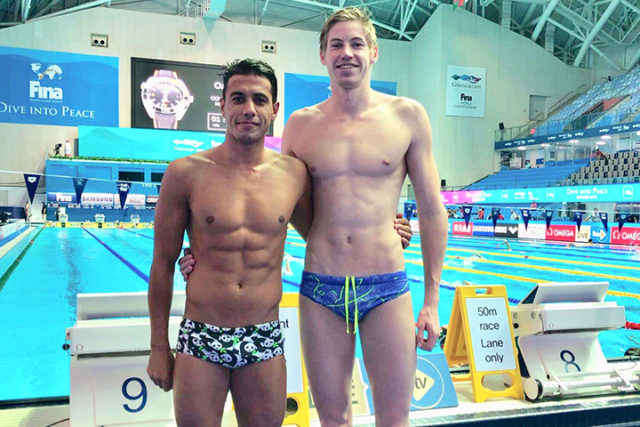
Ayman with fellow F-Teamer Daniel Hunter at the 2019 World Champs
Even in Damascus, swimming was inevitably constrained by war. “Sometimes,” said Ayman, “there is a rock at the bottom of the pool. And people think it is a bomb.” Training would be canceled whenever a gunfight broke out near the pool. The roof of the pool could be destroyed for weeks at a time. In the winter, the pool temperature would get down to 12-13 degrees C – the swimmers would be physically unable to go beyond 2000 meters in a session. And when the lights went out, they trained in the dark, with one coach standing at each end to illuminate the wall by the light of a mobile phone.
At the best of times, the swimmers trained about 3-4k a day, literally miles off the 12-14k that Ayman covers each day at Thanyapura. But it was enough to excel. In 2012, Ayman travelled to Istanbul to swim in his first World Championships. He went on to compete at the 2013 World Championships in Barcelona and the 2015 World Championships in Kazan, as well as several World Cup events. His fondest memories from these meets include racing for the first time against international swimming superstars such as Chad Le Clos (one of Ayman’s inspirations), and winning his first world medal as a member of Syria’s mixed medley relay at the 2015 World Cup in Dubai.

But the Syrian team could not escape the war, even while competing overseas. At the 2014 Asian Games, Ayman received a call to tell him that his best friend back home was dead. Five other Syrian swimmers have also been killed in the violence. Two of Ayman’s teammates, Yusra Mardini and Rami Anis, risked their lives to seek asylum in other countries. But through all this, his family remained safe and sound. He stayed motivated through the darkest moments by remembering the words of his parents: No matter what happens to you, be happy and enjoy life. God made everything for you. Never give up.
In 2015, Ayman’s parents were finally able to leave Aleppo to visit him in Damascus. Recounting their reunion after four years apart, he said simply, “There was a lot of crying.”
Ayman left Syria in 2017. Having just been awarded a FINA Scholarship, he moved to Phuket to train with Thanyapura, under the tutelage of FINA coach Miguel Lopez. On his first day of the scholarship, Lopez said something incomprehensible, and the entire team dove into the water at the same time to begin practice. Ayman was left standing alone on deck, utterly confused.
“Why aren’t you jumping in?” shouted Lopez.
“I don’t understand!” replied Ayman, not having a clue what his coach had just asked.
Ayman has come a long way since then. After just two years, he has adjusted to the intense rigor of the program and his English is excellent (though he will not admit this). He has picked up a sponsorship from Funky Trunks, he is a paid coach, and he has a Thai fiancée. In the pool, he now holds a staggering fourteen Syrian national records in the 50, 100, and 200m butterflies (long course and short course); the 200 and 400m individual medleys (long course and short course); the 100m individual medley, 100m freestyle, and 100m backstroke (short course); and the 4x100m freestyle relay (long course). Recently, at the 2019 World Championships in Gwangju, South Korea, he posted what is arguably the most impressive time of his career: 2:00.59 in the 200m butterfly.
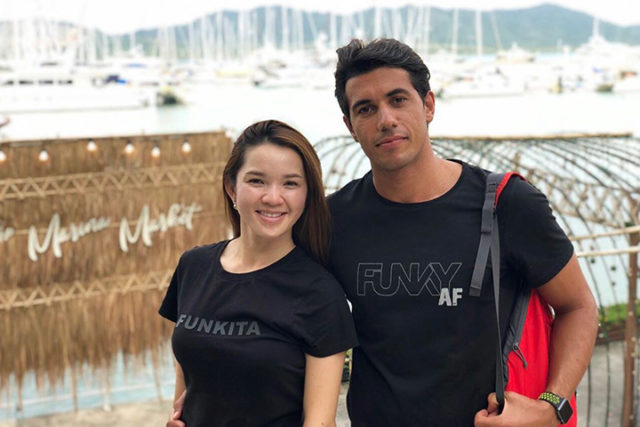
Today, Aleppo is a broken shell of its former splendor. It has fallen – or been reclaimed, depending on whom you ask – by the Syrian government. The civil war drags on, fueled by undying international disputes, unlikely to yield any winners at the end of the day. Yet Ayman still proudly wears the red, white, and black flag on his cap.
“I’m not swimming for the government. I swim for the normal people in my country. My parents firstly. And the young swimmers.” He hesitates, and in that second it is clear he, too, is a fighter.
“I’m just trying to make a good story. For swimming, and for Syria.”
Tomorrow, it will be dark when Ayman Kelzieh shows up for training. But he will dive in anyway, and keep swimming as the sun rises.
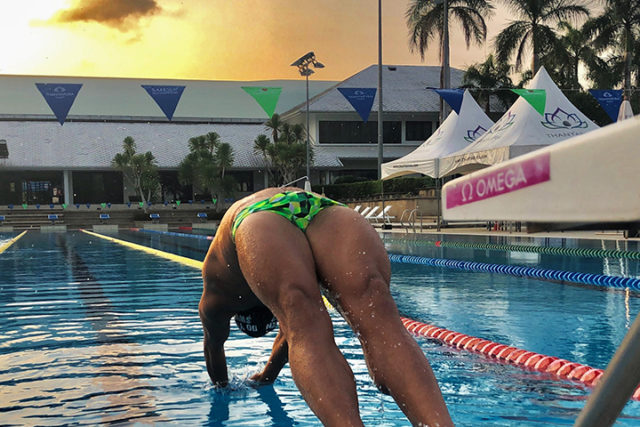
About Jonathan Rutter
We are lucky to have F-Teamer and former Yale University swimmer, Jonathan Rutter on board as a regular writer, bringing our athletes’ stories and accomplishments to life. Jonathan was born and raised in the US and with his New Zealand heritage competes for New Zealand internationally. The breaststroker and 2018 Oceania Championships ‘Swimmer of the Meet’ is based out of Virginia Tech where he swims for Pinnacle Racing VT, a pro training group under Coach Sergio Lopez Miro. He counts graduating from Yale in the top 10% of his class as one of his most significant achievements, has a fierce breaststroke kick and is rarely seen on pool deck without his loyal rubber chicken.
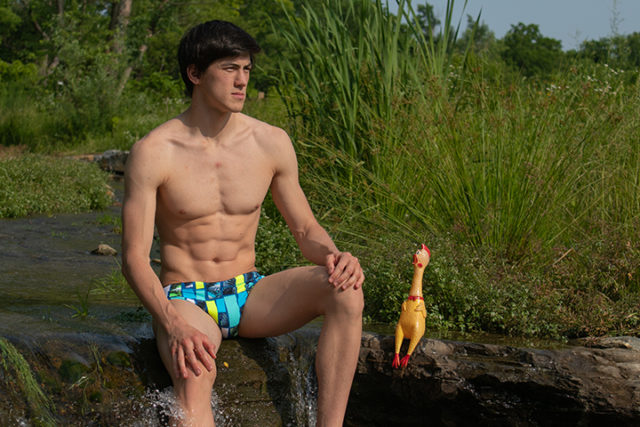
Courtesy: Funky Trunks & Funkita, a SwimSwam partner.
